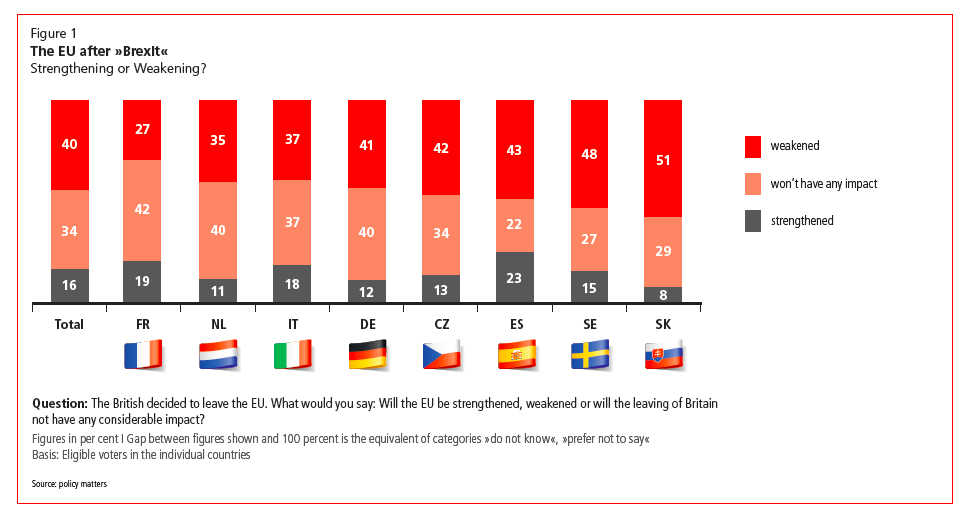Europeans support free movement, not free access to social benefits
A survey carried out by the Friedrich Ebert Foundation in 8 European countries reveals that people support free movement within the EU and have a rather “realistic” view of what Brexit means for Europe.
In the countries analysed (the Czech Republic, France, Germany, Italy, the Netherlands, Slovakia, Spain and Sweden), 57% of respondents said they are in favour of free movement, a core EU principle which allows people to live, work, study and do business in other EU states. Support is particularly strong in Spain (75%), Slovakia (74%) and Germany (70%).
The finding is confirmed by another research, the Eurobarometer, a periodical analysis of public opinion by the European Union. Taking the broader spectrum of the 28 EU countries, 81% (including 70% of Brits) said they are in favour of free movement of citizens. Overall, 57% agree this is one of the most positive results of the European Union, just behind peace (58%) and far above the Erasmus student exchange programme (third at 25%).
Access to social benefits
A positive view on the opportunity to move across countries, however, does not mean also supporting free access to social services in the place of destination. 56% of people contacted by the German Foundation think benefits should be contingent to a period of time spent working in the country.
Predictably, views on this topic vary in different states. 71% of Italians and 53% of Spanish, for example, would like everyone living in another EU country to receive social benefits regardless of the period they have worked there. In other countries, especially Germany and the Netherlands, the majority support linking social benefits to work. One third of people interviewed also agree that EU countries should be allowed to restrict the influx of workers.
In addition, the survey tested views on a minimum standard of social benefits applicable throughout the EU. This would reduce the incentive to migrate in order to benefit from better social welfare in other countries, but has always been considered a matter of national policy. The idea was seen positively by Italians (74%), Spanish (71%) and Slovaks (60%), and received a cold welcome in the Czech Republic (41%), the Netherlands (38%) and Sweden (33%). Opinions were split in France and Germany.
Effects of the UK departure
Regarding the UK departure from the EU, responses showed that people have a rather “pessimistic – and probably also realistic” view of what Brexit means for Europe. While the majority believe the British decision will have no impact or will strengthen the EU, a large portion think Brexit will weaken the bloc.
In Slovakia, 51% of people interviewed said that Brexit will weaken the EU. In Sweden, the percentage is 48%, while 42% think there won’t be any impact or the impact will be positive. In Spain the split is 43% to 45%. The most confident country about the strength of the EU in the face of Brexit is France, where 61% said there will be no consequences or these will be positive, and only 27% said the EU will suffer. The study, however, was carried out between May and June, just after the French presidential vote which saw the victory of Emmanuel Macron.

Attitudes towards the EU seem to have improved since the British referendum. Compared to 2015, in all 8 countries people were more likely to say that being part of the EU brings advantages rather than disadvantages. The most positive responses were in Germany (only 10% saying there are more disadvantages), Spain (13%) and Slovakia (14%). In Italy and the Czech Republic more people say there are disadvantages than benefits, but a third is in the middle ground of an even balance. “Current doubts regarding the benefits of membership do not mean fundamental doubts as to EU membership as such, however, as two thirds of Italians at the same time call for a strengthening of integration,” specifies the report.
It is often said that the EU suffers from a democratic deficit. In this regard, the survey shows that 69% of people would be favourable to the introduction of Europe-wide referenda and 59% to the direct election of the president of the European Commission.
Claudia Delpero © all rights reserved.
Photo via Pixabay.




